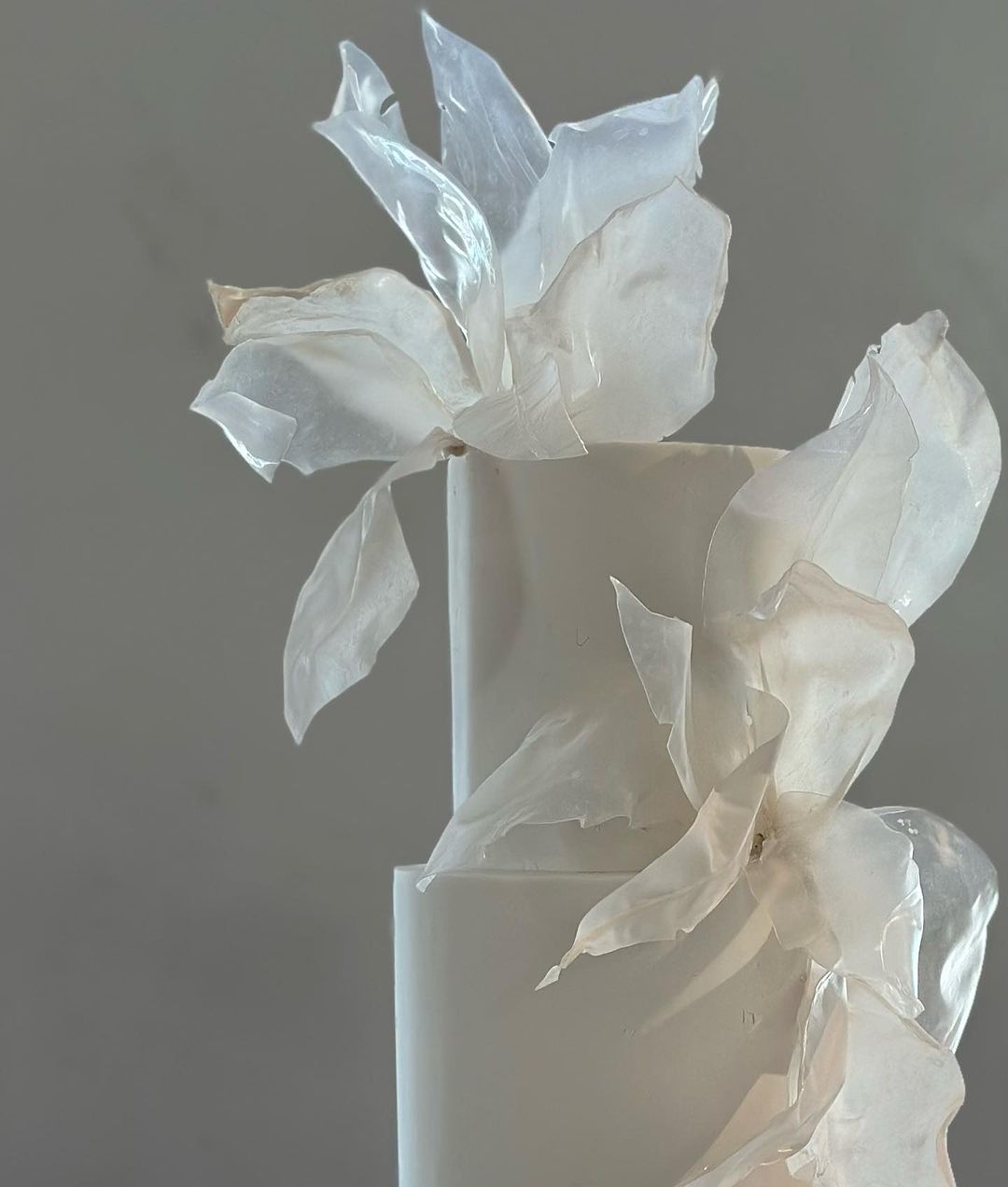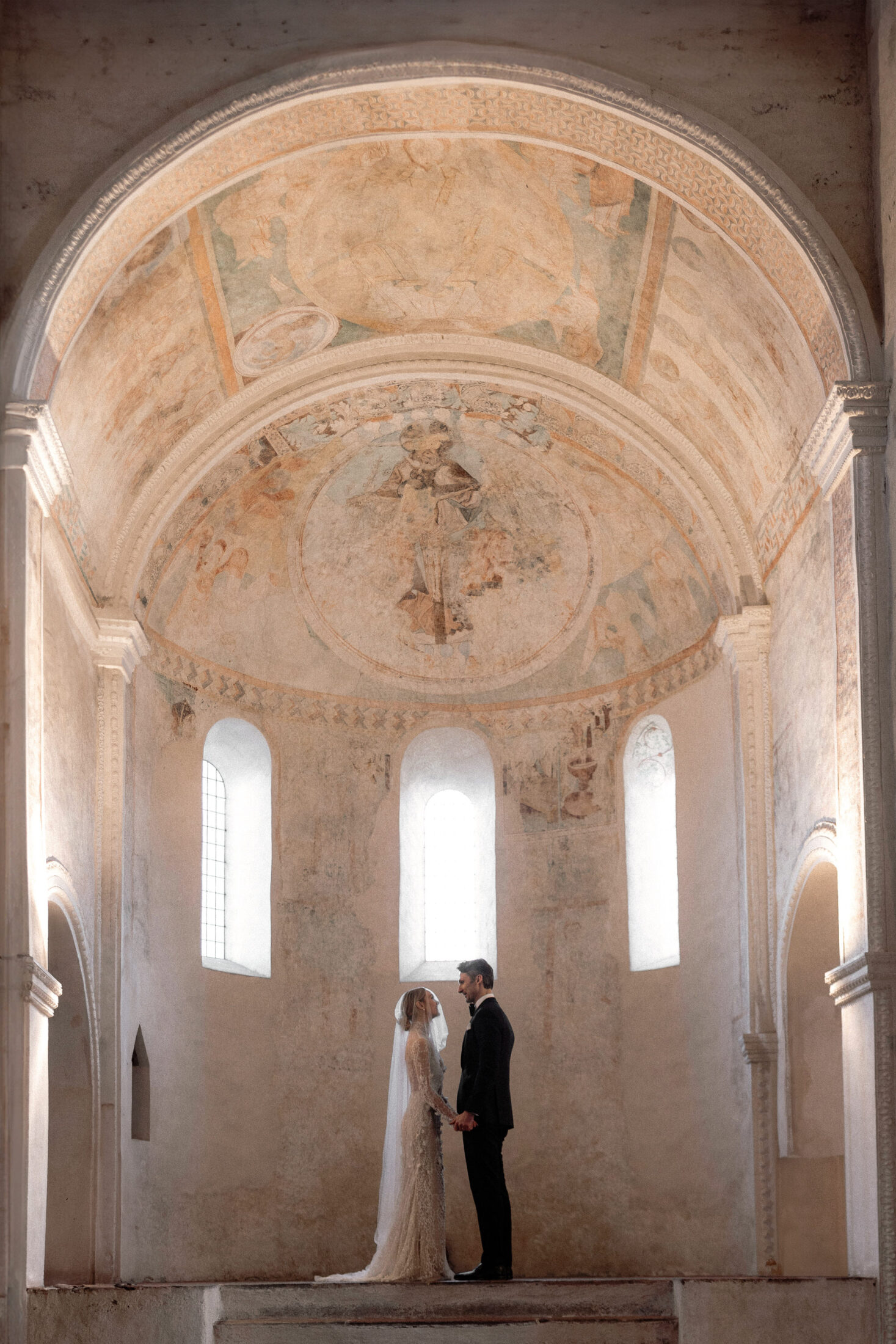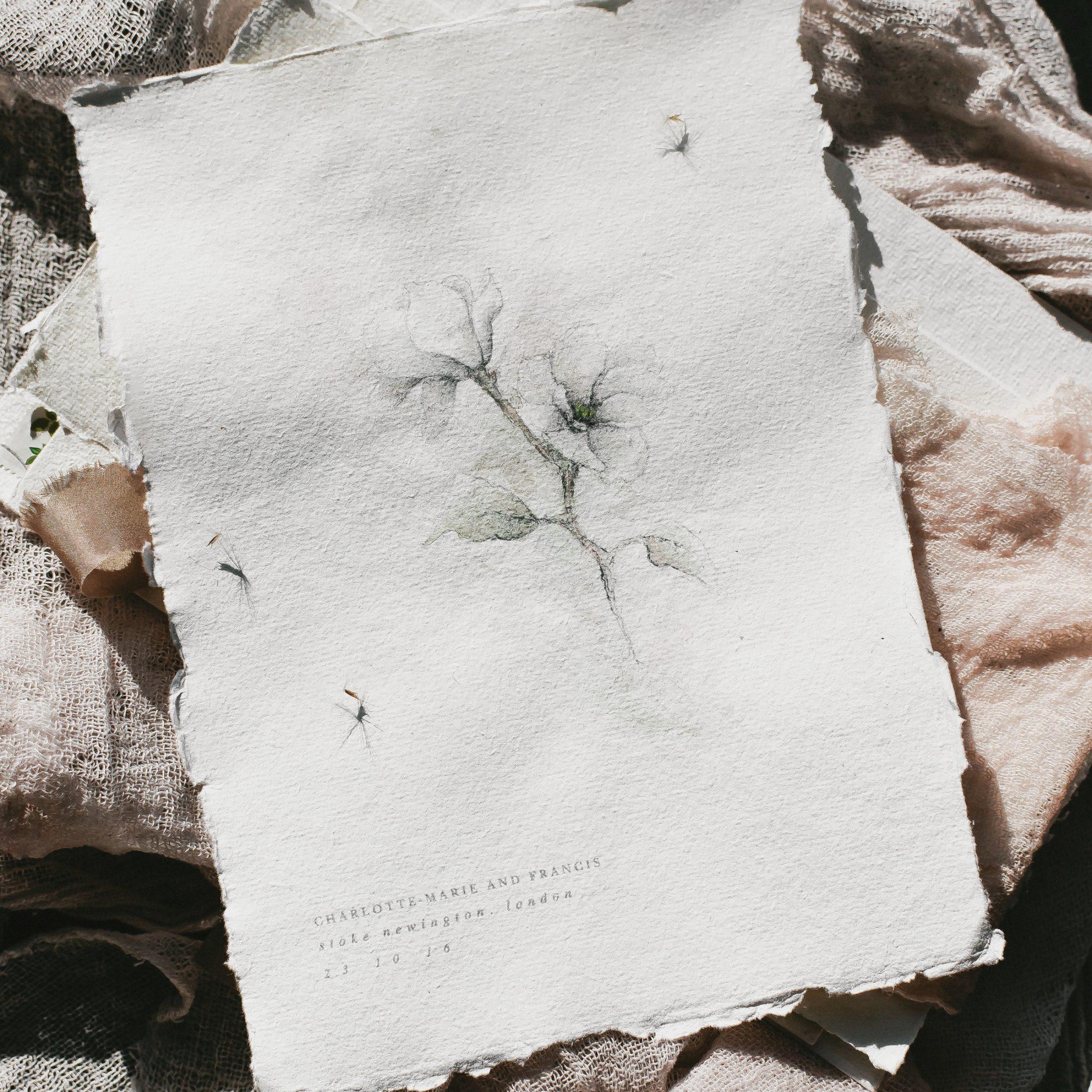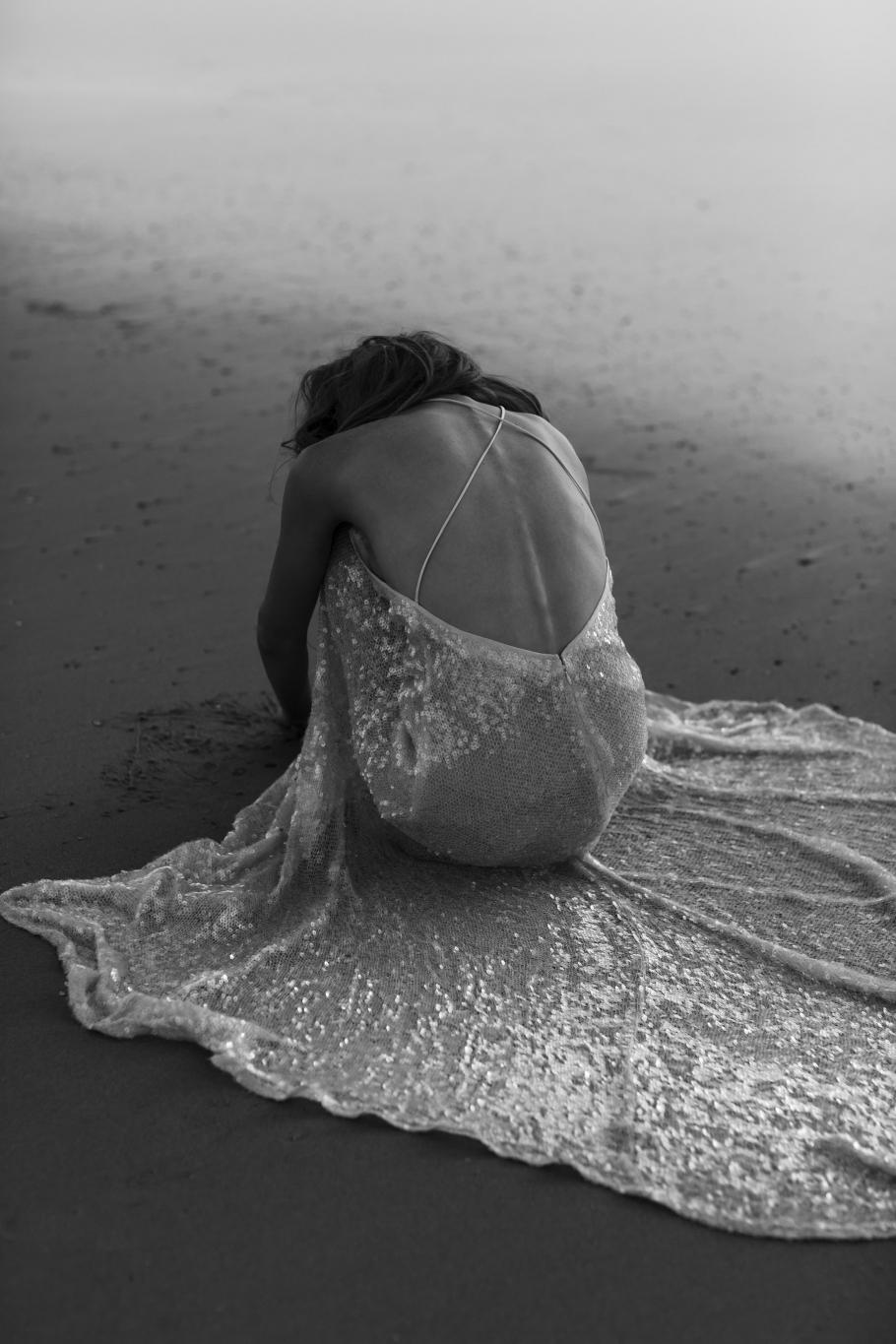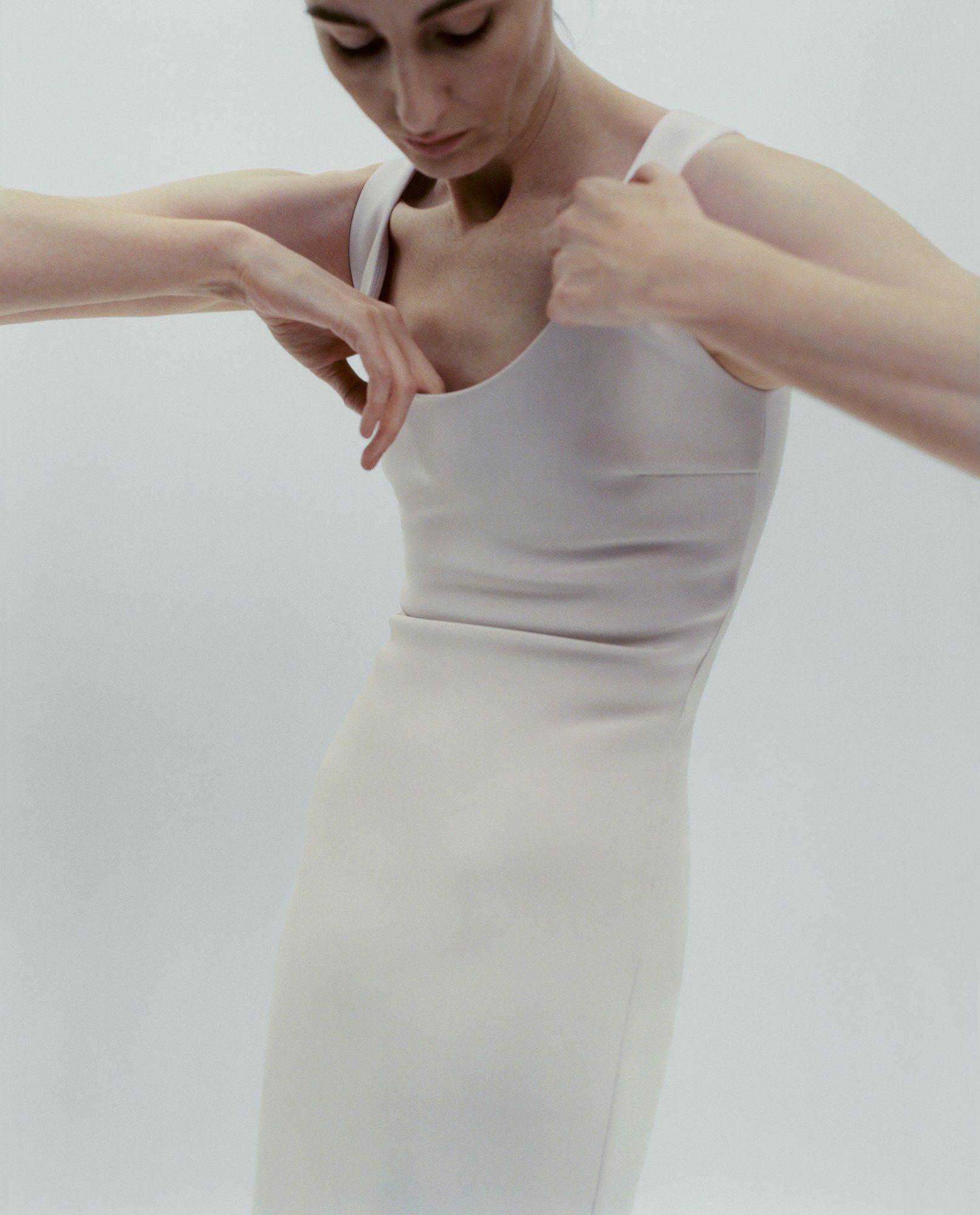Bespoke Baking with Gillian Bell
Gillian Bell is a culinary alchemist. A creative spirit who takes the stories of two people’s lives and combines them through flavors
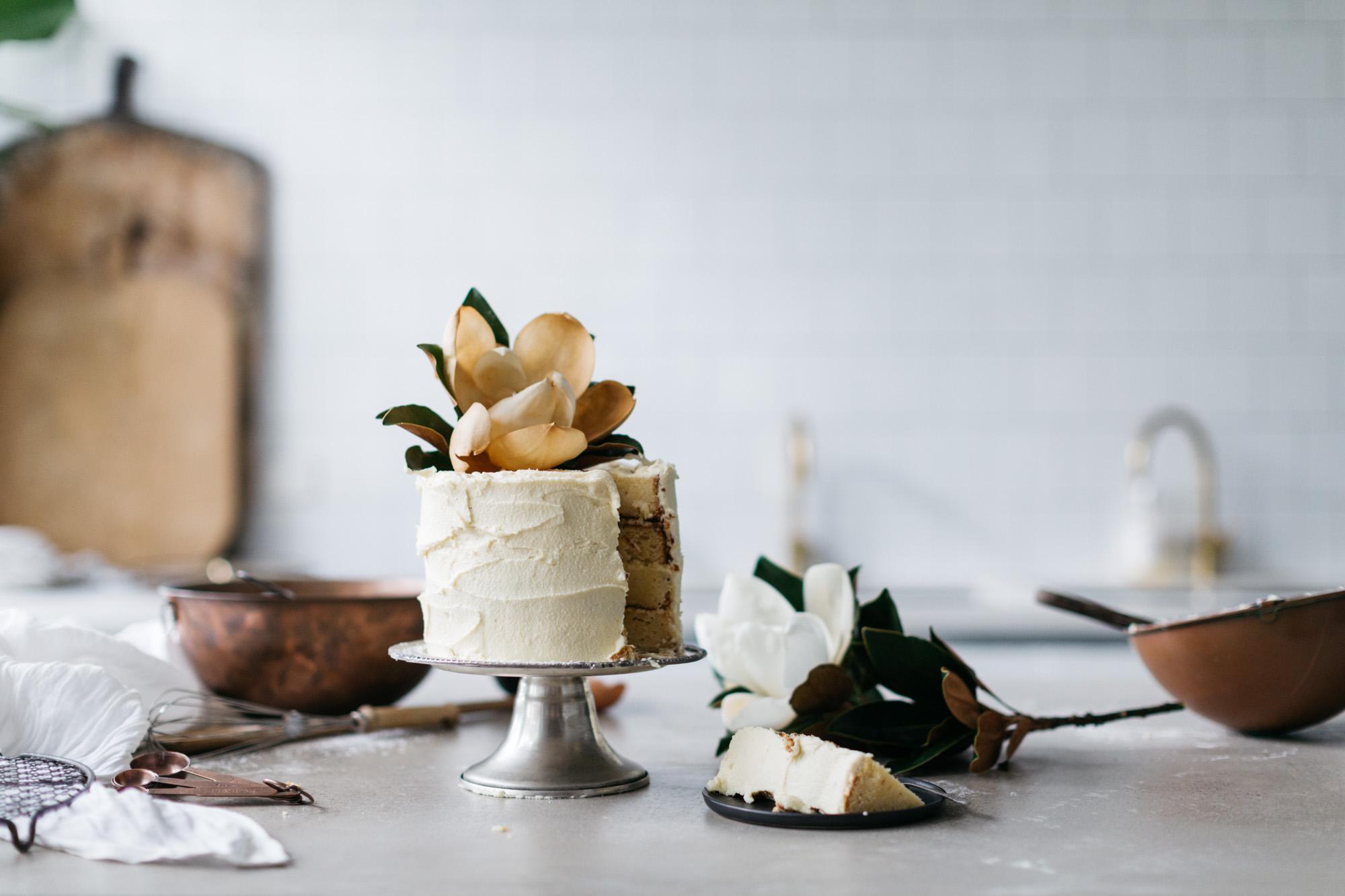
Creating cakes that recall the bumped knees of childhood, the adrenaline of intrepid adventures, and the vibrance of a defining love… Gillian Bell a culinary alchemist. The Brisbane-based artisanal baker and self-proclaimed “food geek” has spent her life perfecting her craft, and it shows in every word she expresses, and every bite of her decadent, organic creations.
Gillian is one of those people who is startlingly open. A creative spirit who lives with her heart exposed, she takes the stories of two people’s lives and combines them through flavors to tailor an organic, edible and beautiful representation of their marriage.
We love her story and had to hear more, so we hosted Gillian at The LANE recently, where she baked and shared an incredible passionfruit buttercream cake, and told us why and how she can capture a lifetime in a cake.
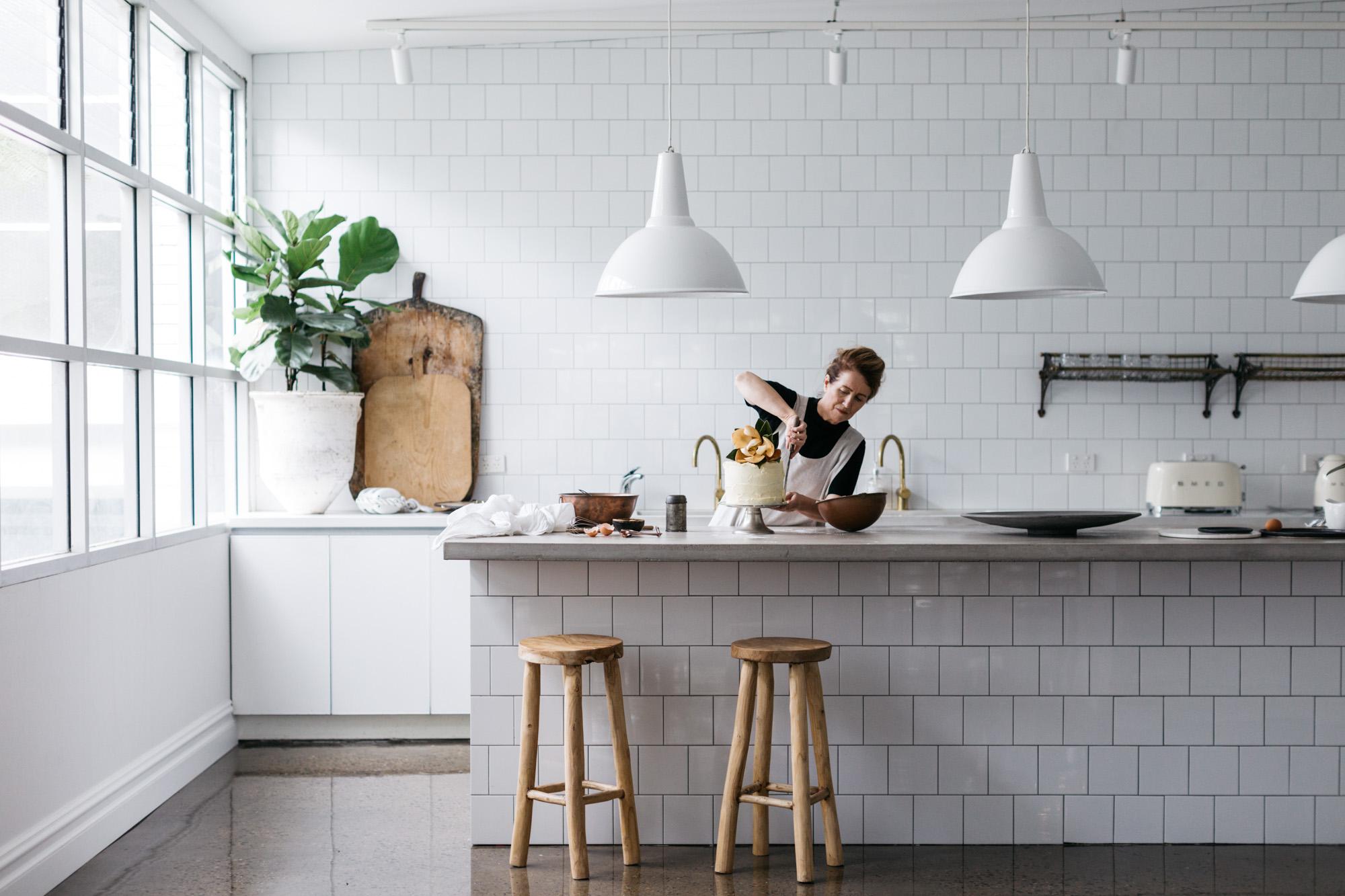
“The night before the wedding, once it’s gone past midnight, once it’s truly the wedding day, I start to make the cake and I do everything by hand.”
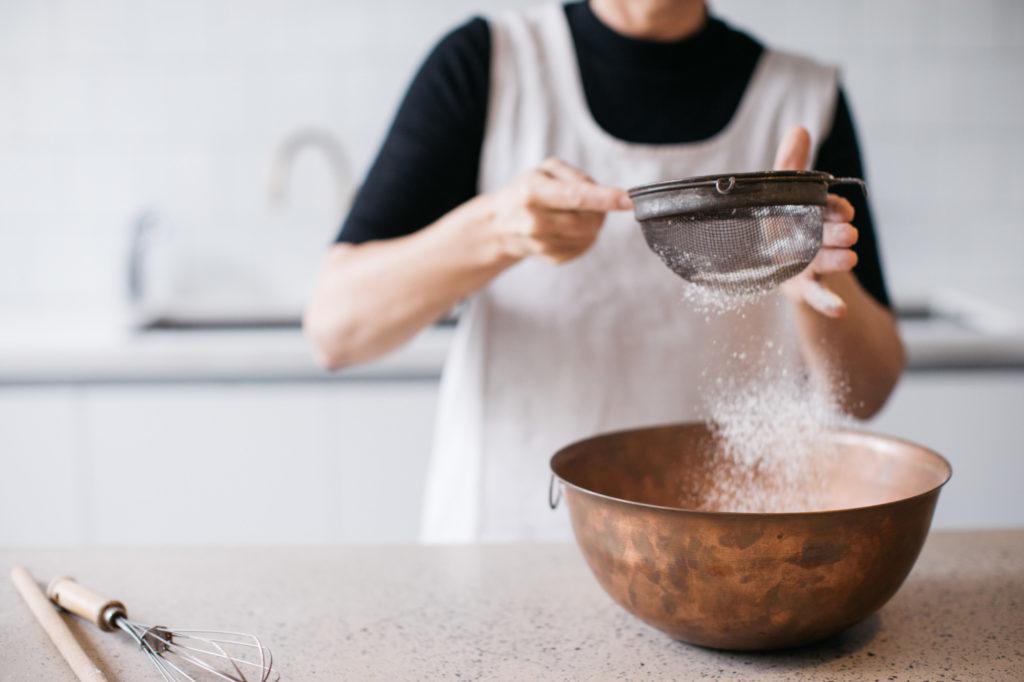
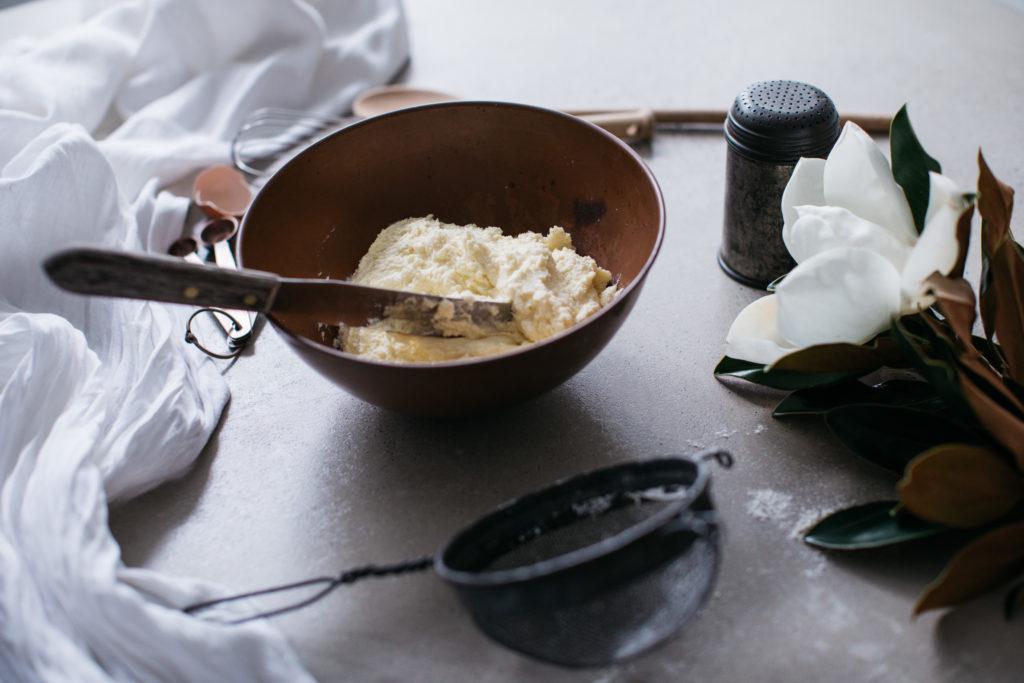
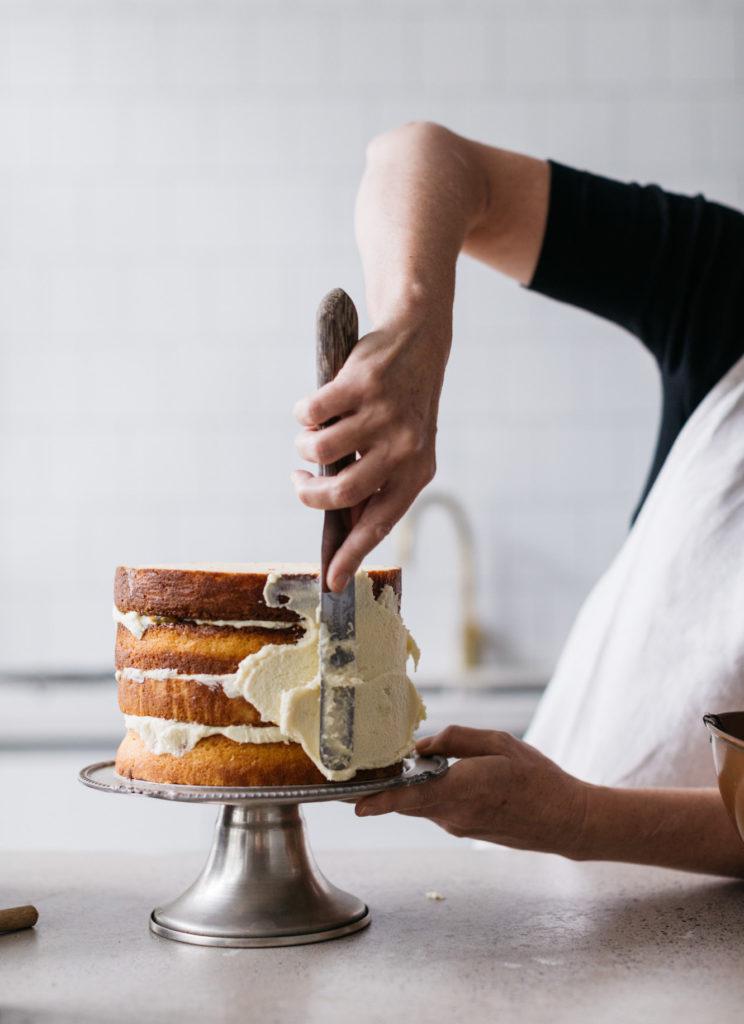
What was it about baking that caught your attention, and do you remember when that first happened?
I’ve baked since I was a child, I think I just really loved cakes and tarts and things like that, so I figured that I had to learn how to do it. I learned the principles from my mum but really just taught myself and became the baker in the family. I can even remember making my first faux pas. When I was about 3, I used to climb up on the cupboards trying to reach what I thought was cocoa powder or chocolate or something up there. One day I finally reached it and made chocolate patty cakes, but it was actually coffee! It was seared into my brain from that early age – coffee, water, icing sugar – it does not work! I’ve been committed to improving since then (laughs).
Couples fly you all over the world to have you make their wedding cakes and tell their story through your work. How exactly do you capture who they are, then express them through your creations?
You won’t get a list from me that says ‘chocolate mud’, white mud’, ‘caramel mud’, I design recipes based on each couple. My cakes are more like chocolate and violet, or they involve jasmine – in Brisbane there’s the smell of jasmine everywhere, so I might offer local clients a jasmine cake so that when their anniversary comes around and the scent is hanging in the air, it will remind them of their wedding day, it’s so evocative. I try to make my cakes evocative of a place and a season.
Also, when people come for tastings, I make four or five cakes and I always ask if there’s any flavors they’re keen to try. During these tastings, we’re eating and drinking tea and talking and chatting about the cake, and you start to elicit these stories about what foods they’re reminded of, how flavors relate to different times in their life. There is always something, even if it’s not obvious. When you used to walk home from school were there flowers you admired and you remember their scent? Or are you from an Italian family with an historic family recipe, or what about your favorite ice cream, or when you went on summer holiday – did you have a special treat that you just loved?
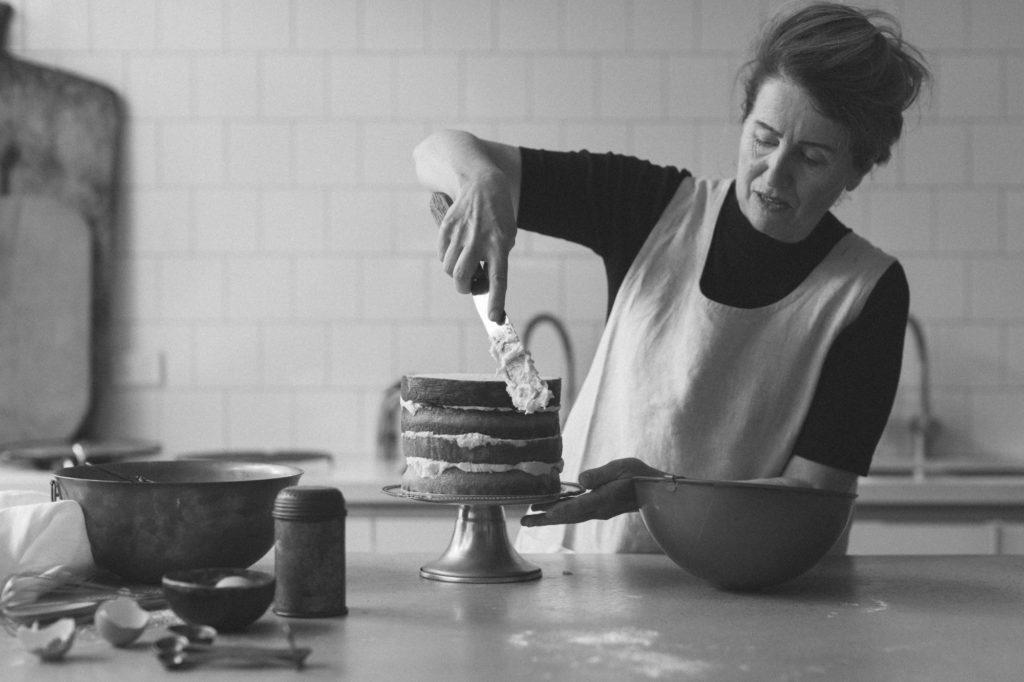
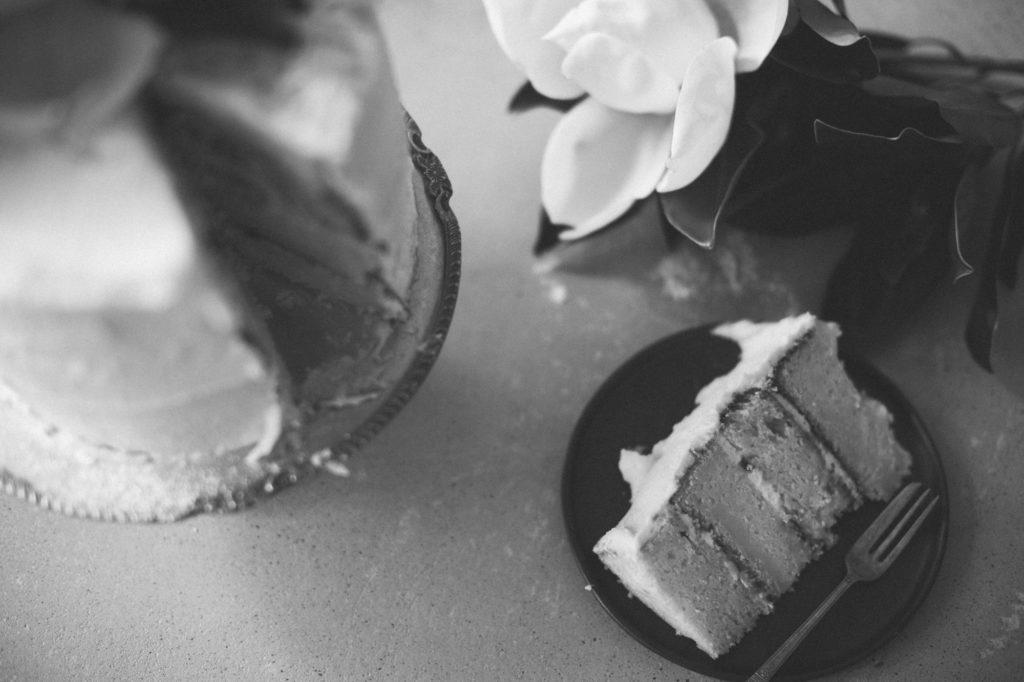
Can you share some examples of those stories, and how they translated through your cakes?
One time I met a woman who became engaged in Mexico where they had tres leches (three milk) cake, so she asked me to recreate that flavor. I thought, if we’re talking Mexico, there will probably also be some chocolate, and some cardamom, and some chili and cinnamon… They loved it, and they simply identified one part and I added to it. That happens often, because I can only work with what is in season, and people don’t know what they haven’t tasted, so I like to give them something unexpected to try.
I know it sounds funny, but I have people weep when they come to taste their cakes, and I cry too. There was one bride who tried a raspberry cake and she said – I’m going to start crying now… she said, “Gillian, I haven’t tasted this since my grandmother was around”. That’s what I love about food and baking – the ability to move people.
To be able to bring out that emotion and have such an impact must feel so rewarding. What is it about say, that particular raspberry cake that resonates so much more than any other raspberry cake – how do you make such a close connection to emotion through food in a way that other people can’t, or don’t?
Because I become involved in the story in a way, I live the story with them. Last year I was in New Zealand to meet a couple and one of them had grown up on the North Island. He told me how he would go to his grandmother’s garden to pick raspberries and that his mum had a lemon tree. I flew into Christchurch and stayed on a farm just south of the city. The wedding was in the spring, so raspberries were picked fresh from his grandmother’s farm in the previous summer and frozen, and his mother’s lemons and the raspberries had been transported to a spot near where I was. I left at dawn to pick up all those raspberries and lemons – it turned out to be a six-hour round-trip, and along the way, people were fascinated by the idea that I’d come from a different country to make a wedding cake – you could tell they were questioning why someone there couldn’t make the cake, and why we couldn’t just buy the raspberries and lemons from the supermarket. Raspberries and lemons weren’t in season at that time of year, so they wouldn’t have the flavor of the summer, they could never have the flavor of a grandmother’s garden.
So, on this six-hour journey, because there is only so much equipment and ingredients I can carry in my luggage, I just asked people in the local communities along the way to lend a mixer and a few other things, and people helped me. It’s sort of like I baked the cake along the way. I collected and gathered the ingredients, and borrowed this equipment just on promise that I would bring it back on my return journey. All of those people became part of the story. The community came together to make this couple’s cake everything they wanted it to be, and it worked, the groom cried when he tasted it, he was so happy.
That’s an example, but it’s how I make that connection. I really become involved and I won’t cut corners with ingredients, that’s so important to me. I feel like I become part of the family in a way too.
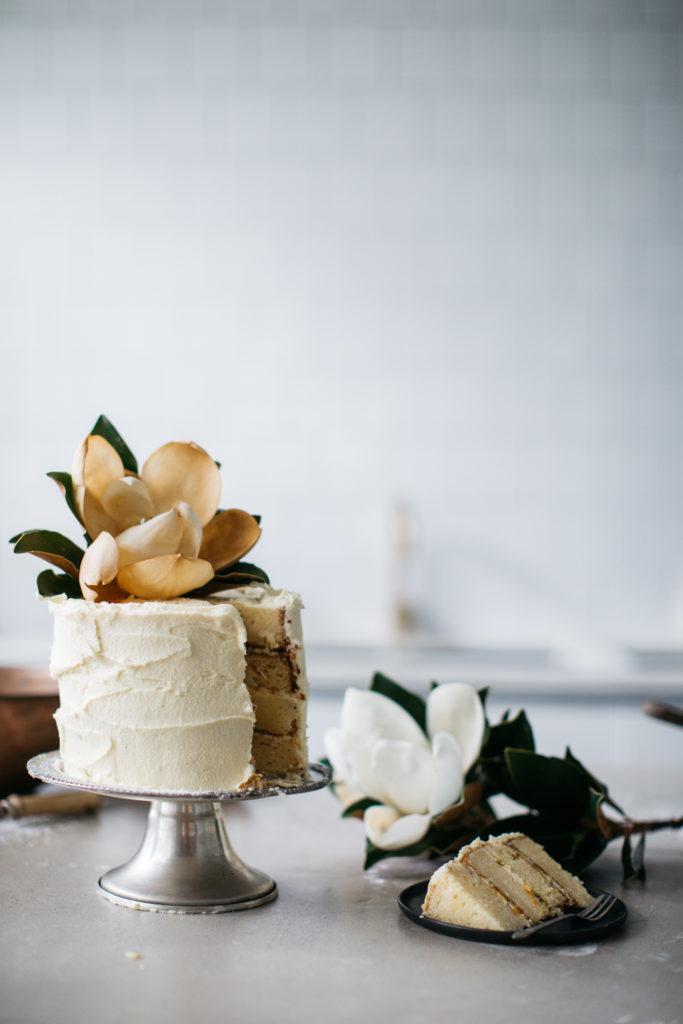
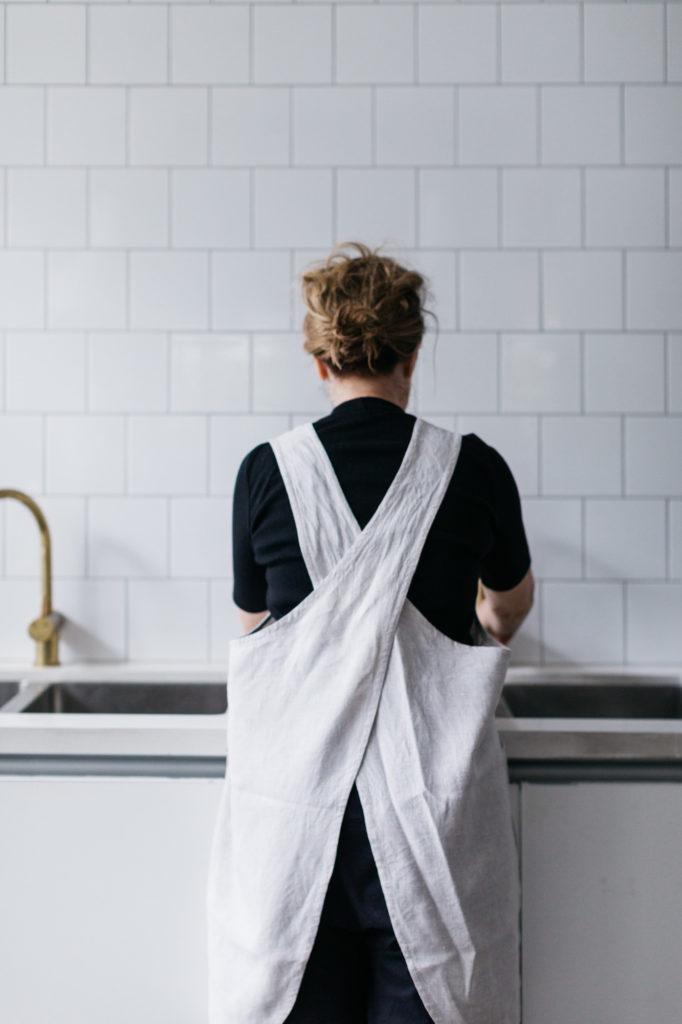
I can imagine they feel exactly the same way, what an incredible experience that would have been for everyone involved! Can you expand on what you mean about your ingredients – what is your food philosophy?
Well, my approach to food is a little bit “hippie”, or what people used to call “hippie” when I started. Now it’s becoming normal, but I only work with organic ingredients and I have to know the people who grow or make them if I can’t grow them myself. I was born in London and my parents grew up during The Depression. People grew food on any bit of land they could in the city and I got a sense of so much. I knew what the frost would do – to get a really good Brussels sprout, you had to get a frost – and I learned how you protect plants by putting straw over them in the winter, and how you look after the soil, all of those sorts of things. We were city people, but we knew the real national treasures were people who knew the land and grew the food for you. If we don’t have them, we’re in trouble, so I have a lot of respect for them and I like to get to know them. We need clean water, clean air, clean food – these are the fundamentals of life.
Anyway, once I was old enough, I traveled all the time. I spent quite a lot of time in Eastern Europe, and at that time in that part of the world, people there were starving. I was drawn to their food and the part it played in people’s lives, how it brought families together, how people grew it and what grew where, different recipes and why people chose certain dishes, how they were influenced by the seasons and climate and the tools they had. It’s fascinating how people approach things differently – even how people chop the same food differently. I’m fascinated by it, I always have been.
How does that interest translate into your process today – has it changed how you source and use your ingredients?
It has. I live in the city, but garden my yard to within an inch of its life. I also have a plot of land about 10 minutes from home that I use. Everything I can grow myself, I do, every flower I use comes from my garden has never been sprayed. If I can’t grow it myself, I source from growers nearby wherever possible, I visit them in person so I can know if something has changed with the food and why.
I have to be so close to my ingredients. I can tell how they’re moving, how the batter needs more of this or more of that, because it changes throughout the year with the seasons – and so it should change because it all comes from plants or animals that are feeding on plants. You can see the color of the eggs change, and flour is like wine – it comes from a plant that grows in different soils and is harvested at different times of year. When you’re close to your ingredients you notice the difference in the color of the creams and the butters because the pastures the cattle are grazing on are different.
That means I know the source of every ingredient in every cake and nothing is artificial so I layer flavor through everything. I put rose petals or lavender in sugars. I infuse milks and creams as well – anywhere I can add natural flavor, I do.
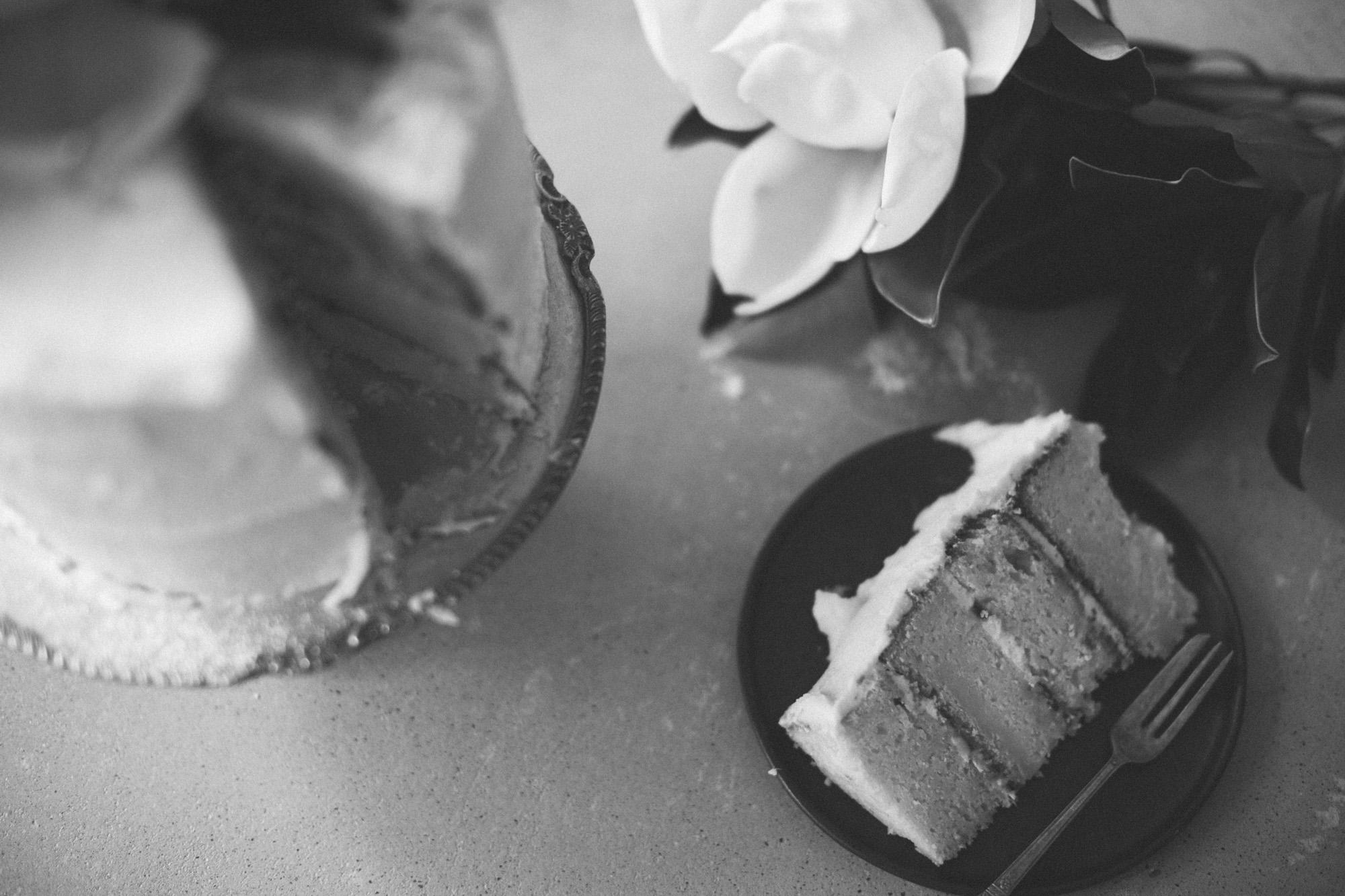
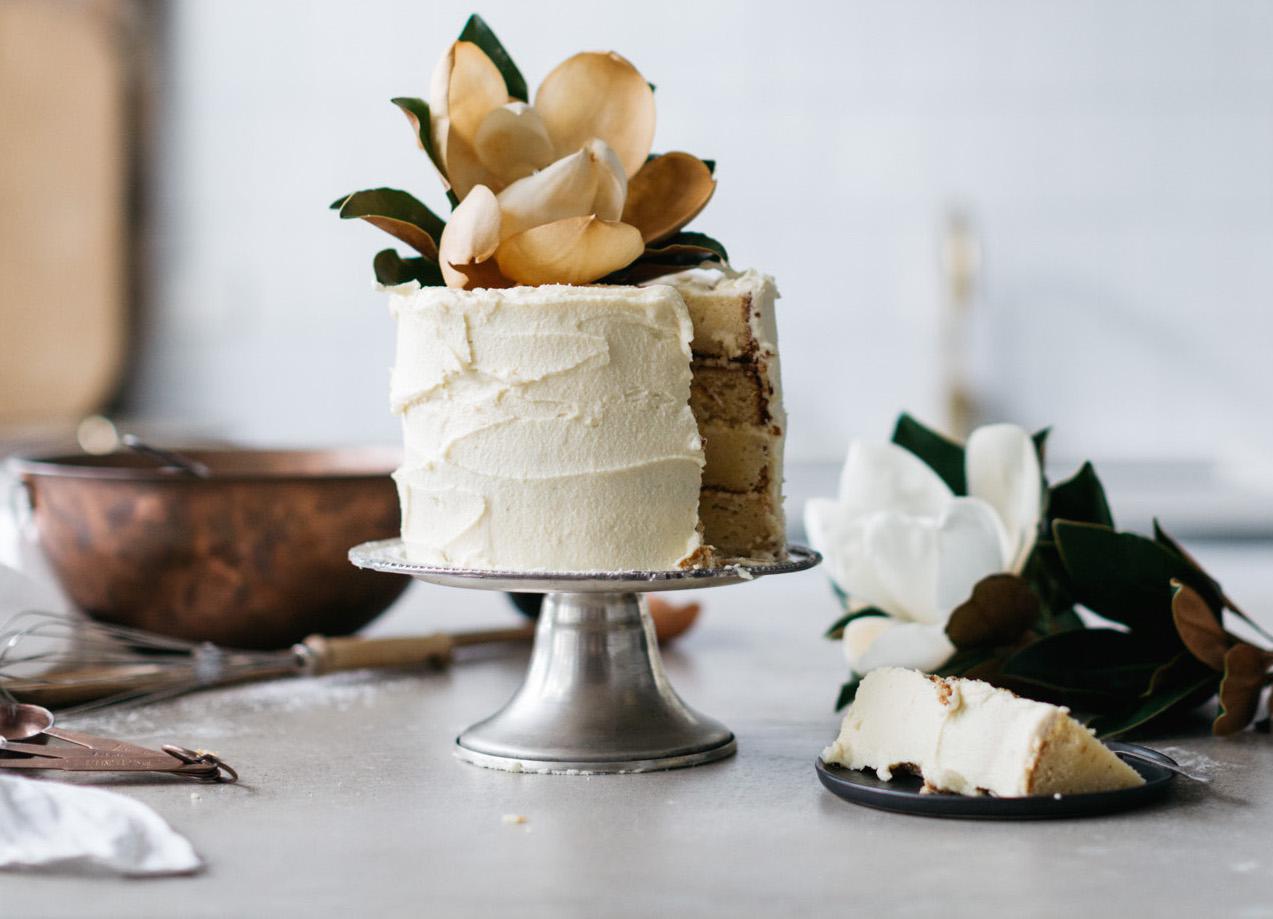
We’ve heard the actual act of baking a wedding cake is ritualistic for you, can you share the details of that experience?
I always make the wedding cake on the wedding day, it really is a ritual. Once I’ve discussed what I’m making with the couple, I go and source all the ingredients. For example, I had one cake that was hazelnut and apricot. I got the apricot earlier in the season which I had preserved in jars – they’re my jewels. I then sourced the hazelnuts from a New South Wales grower, he’s fantastic, and I milled my own hazelnut meal.
The night before the wedding, once it’s gone past midnight, once it’s truly the wedding day, I start to make the cake and I do everything by hand. The only parts I don’t do by hand on the day is the milling of flour and the nut meals and making the preserves. When I’m stirring in the ingredients, I’m stirring in good wishes for a long, happy and fulfilling marriage. Once the cakes are in the oven, I go out under the stars and drink peppermint tea. Then, when the cakes come out of the oven and they’re cooling, I go to sleep. At about dawn, they’ve cooled enough to start filling them and to add the icing and petals, then they’re ready to go off on their journey that afternoon.
That sounds like a huge undertaking! Why is it so important to you to go through this exact process, and what is the reward?
I couldn’t imagine doing it any other way. You wouldn’t make a sandwich on Wednesday to give to someone on Saturday – and this is your wedding cake! To me, each one is completely unique and special and the wedding and the marriage are worthy of an effort that honors the importance of the occasion. There would have been someone sewing individual beads on a wedding gown, so I’m there milling grain and making butter from scratch for the cake, that’s my version of making a wedding gown. Also, I just feel it. I feel the connection. When there’s mountains of washing up and you’ve been up all night and you’re really tired and its hot and everyone is in bed and you think, what I am I doing today? It’s that connection that keeps you going, it’s always worthwhile.
Visit the Gillian Bell website to enquire and see more of her work.
Directory
Wedding Cakes & Desserts
Find our handpicked edit of Wedding Cake & Dessert artists from around the world on the Directory.
